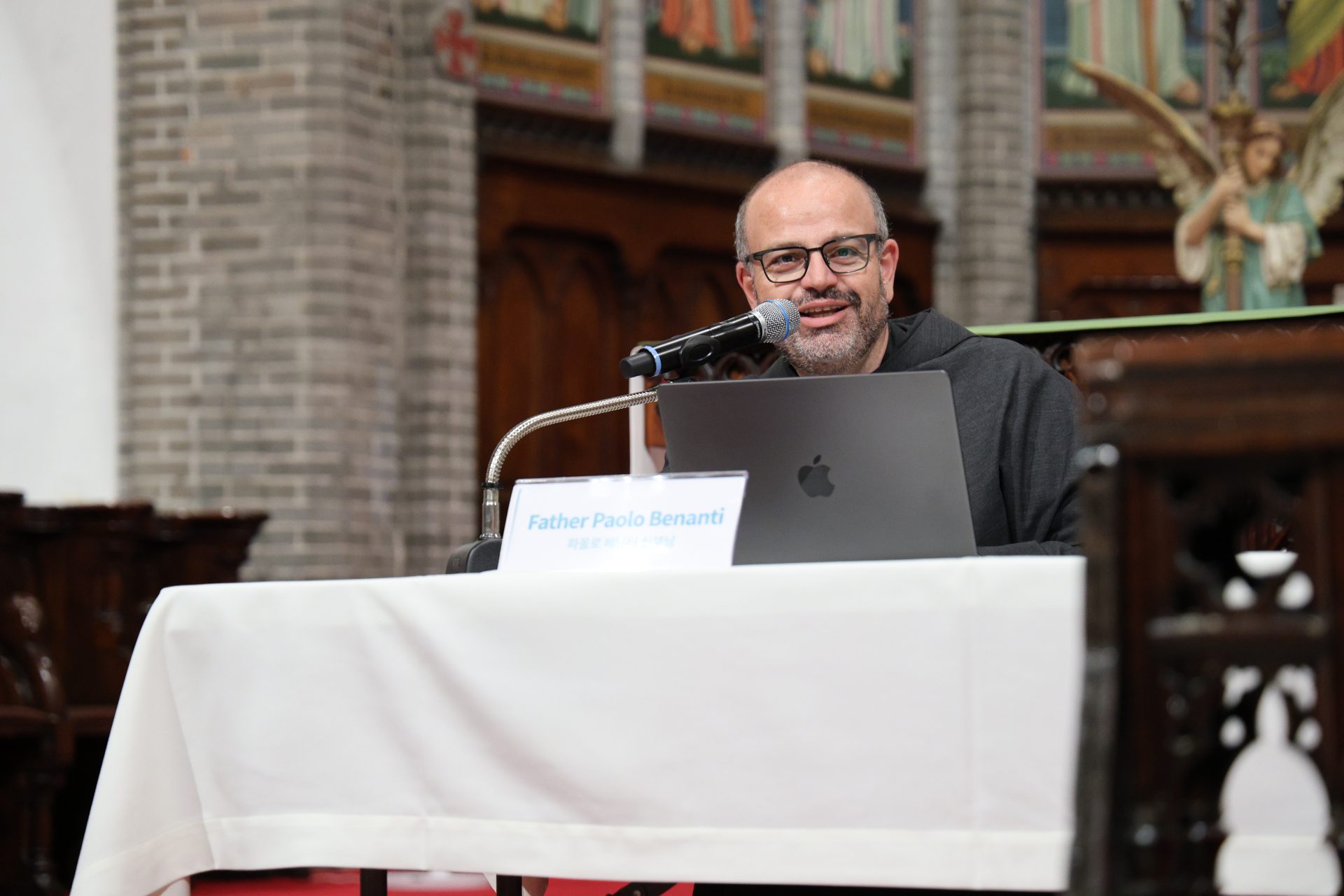Fr. Paolo Benanti, a theologian and ethicist, addressed over 800 participants at Myeongdong Cathedral during a lecture on the ethical implications of artificial intelligence (AI).
The lecture launched the “World Youth Day (WYD) Journey to Knowledge” series, organized by the Archdiocese of Seoul’s Committee for Communications and the WYD Seoul 2027 Local Organizing Committee.
Fr. Benanti focused on the moral decisions embedded in AI systems and the impact of technology on society.
“We must change our perspective on the ethics of technology to see it as a form of power,” he said. “Every ‘if this, then that’ command in AI entails a moral decision, influencing who is valued and who is not.”
He cited historical examples, such as Robert Moses’s infrastructure designs in New York, to show how “every technological artifact acts as a displacement of power and a form of order, influencing social dynamics and access.”
He also pointed out that technological advancements, like innovations in tomato farming, often “result in market contraction and benefit only those who can afford the technological shift.”
In the Q&A session, Fr. Benanti encouraged young participants to approach technology with caution. “Do not be scared by technology,” he said, referring to Caritas in Veritate by Pope Benedict XVI.
“Technology reveals humanity’s aspirations towards development and our inner drive to transcend material limitations. When used with prudence, it can draw us closer to contemplating and worshiping the Lord,” he said.
He added, “Innovation is not enough; innovation is only to do things bigger and faster but not better. We need another category, and the category is development. Development is the innovation that works for the common good.”
Fr. Benanti’s lecture set the stage for the WYD Knowledge Journey series and highlighted the Church’s role in ethical discussions on AI, particularly for young people.







